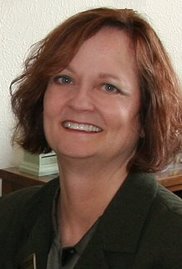For weeks, friends and colleagues have said I should write about caregiver guilt. Since it was first mentioned, I've noticed the common theme as caregivers speak about their experiences with their care person (care person = person needing care; I've stopped assuming that "loved one" is an appropriate description for the relationship between the caregiver and the person needing care, hence, I've adopted the neutral term "care person" to describe the recipient of the care).
How can these people feel guilty? I ponder. It is an oxymoron in the face of reality. While caregivers definitely vary widely in the actual time committed to caregiving tasks, it is my opinion that caregivers give much of their emotional energy to the fact of caregiving, and that they give all that they can, given their individual emotional, financial, and physical capabilities. Guilt should be far from their repertoire, and yet, there it is. Guilt is an entity that makes itself known and felt in broad strokes through families as they make their way through life.
From the daughter who spent 8 hours straight at the side of her dying mother, "I shouldn't have left to have dinner, she wouldn't have died alone."
From the long distance son, "I should have moved mom closer to us; I would have been able to spend more time with her."
But, there's: "when I moved dad to the city where I live, I wasn't able to spend as much time with him as I intended. Work and family took precedence, and I ended up feeling guilty that I moved him away from his familiar neighborhood and friends."
We can never anticipate everything that we might feel guilty about later. It seems we're very good at creating guilt no matter what our actions have accomplished.
The next time guilt starts taking hold, try imagining the life your care person would have had without you. Start listing the things you have done that have made a difference to someone else. Be grateful for the opportunity to be a caregiver; what a marvelous and blessed role it is.
Take care.
~debra
Saturday, April 28, 2007
Friday, April 27, 2007
Sally, 66 years old

Last Saturday I helped to admit her and spent time advocating in the ER for pain control. (ER nurse: "She says she's not in pain." Me: "Please looka t her face and listen to the groans of pain. That is not normal for my
client.")
Sunday when I checked on her they told me she was dying. I called her daughter, who also came, but I stayed to be with my client. It was a service I had provided for 3 years. Comfort, advocacy, camaraderie. I knew her better than any one. Her dtr had visited 4 times in the last year.
Today, at the funeral, I wanted to ask the 30 or so persons in the room who they were and where they had been for the last 3 years. The family took care of all the belongings at the nursing home.
I was there for the client. Representing her real, current life. They were a part of her past, and also important to be there. I was also there for myself, because I did love her.
Thanks for listening. Have a beautiful weekend.
Beginning
I am a social worker. I love people. Growing up, I didn't know I was a social worker. I just knew that I loved people. Especially elderly people. The work that I do now is extremely rewarding, and helpful to others who don't want to go it alone. I am a Professional Geriatric Care Manager (PGCM).
The people I work with are very special to me. I want to share their stories so that they can be special to you as well. They want to help you. Help you to avoid the mistakes that they made. Help you to learn from their wisdom. Help you enjoy life more and have more quality time with your family and friends.
Come along, if you'd like. You might find something of interest, of help. I'd be grateful if you did.
~
The people I work with are very special to me. I want to share their stories so that they can be special to you as well. They want to help you. Help you to avoid the mistakes that they made. Help you to learn from their wisdom. Help you enjoy life more and have more quality time with your family and friends.
Come along, if you'd like. You might find something of interest, of help. I'd be grateful if you did.
~
Subscribe to:
Posts (Atom)
